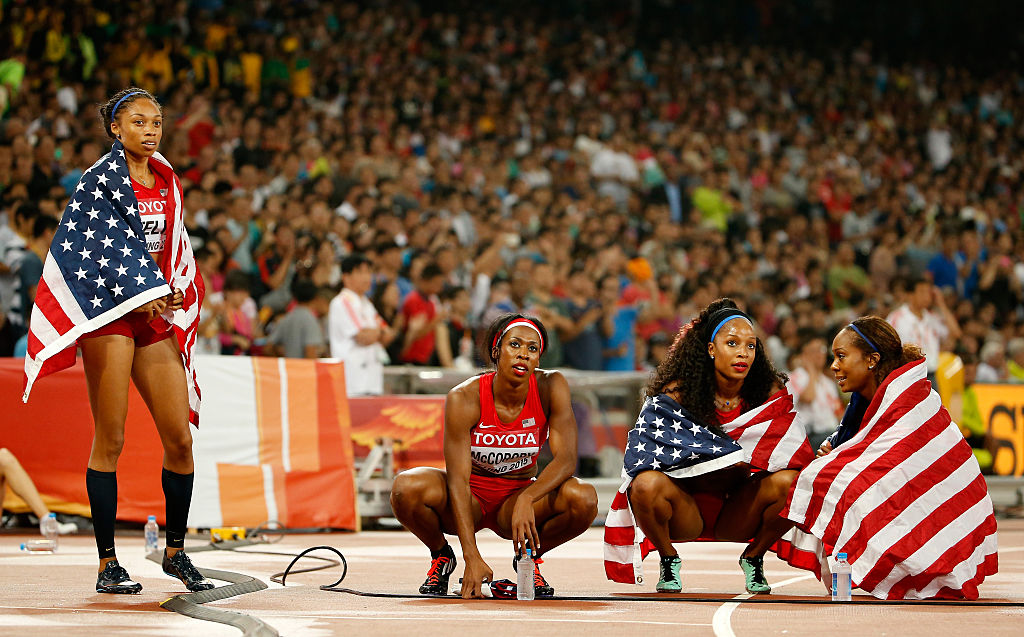For many athletes, getting a shot at the Olympics is the experience they work for their entire lives. Yet for women, it can come with heavy sacrifices — including the pressure to end the lives of their own preborn children. And women are beginning to speak out more often.
A new article for Verily examines multiple heartbreaking stories of elite female athletes, pressured or coerced to have abortions so they could continue succeeding in their sport. Many of them felt they had no choice — that if they became mothers, their athletic careers would be over.
One athlete, Sanya Richards-Ross, wrote a book about her life and athletic career, which included the grief surrounding an abortion she sought before she competed in the 2008 Beijing Summer Olympics. “I knew I was at a crossroads,” she wrote in her book “Chasing Grace: What the Quarter Mile Has Taught Me About God and Life.”
She added, “Everything I ever wanted seemed to be within reach. The culmination of a lifetime of work was right before me. In that moment, it seemed like no choice at all… All of the crying leading up to that moment had left me so numb that I barely remember the cold instruments as they brushed against my skin… I made a decision that broke me.”
Richards-Ross is far from alone, which she noted in an interview with Sports Illustrated. “I literally don’t know another female track athlete who hasn’t had an abortion,” she said, adding that she felt like she didn’t have a choice in the matter. For college athletes, the pressure to have an abortion can be even more immense — giving birth to children affects not only their athletic future, but their educational future, as well.
An ESPN investigation found that female athletes are frequently threatened with losing their athletic scholarships if they become pregnant. At Clemson University, for example, at least seven athletes sought abortions; if they didn’t, their spot on the team would be given to someone else and they would lose financial support. Cassandra Harding, a student at the University of Memphis, was told to have an abortion. She then realized she was four months pregnant, and therefore, it was too late. Harding kept her baby, and her coaches cut her scholarship.
READ: Nike spotlights pregnant athletes in powerful maternity ad. But for some, it’s too little, too late.
Professional athletes face similar discrimination once they become pregnant. Allyson Felix is the most notable example; in a New York Times op-ed, the Olympic sprinter explained that Nike tried to force her to take a 70% pay cut when she was pregnant. When her contracted expired, Nike wanted her to sign a renewal, so she requested a guarantee that she wouldn’t be punished for performing at a lower level while pregnant and postpartum — which Nike refused.
Phoebe Wright, another runner who had been sponsored by Nike, also said pregnancy discrimination is rampant. “Getting pregnant is the kiss of death for a female athlete,” she said. “There’s no way I’d tell Nike if I were pregnant.”
Thankfully, there are changes being made — slowly, but steadily, as more women speak out.
Felix has partnered with her new sponsor company, Athleta, and the Women’s Sports Foundation to create a child care grant for Olympic moms. Athletes chosen so far include hammer thrower Gwen Berry, saber fencer Mariel Zagunis, and Paralympic volleyball player Lara Webster. These mothers will receive $10,000 to cover the cost of caring for their children while they compete. Webster told Fast Company in response, “It’s not an exaggeration to say that this grant is life-changing. It’s not just the money: It’s that big companies are now beginning to understand what the struggle really is for mom athletes… It sends the message to all female athletes that we don’t have to choose between motherhood and our sport. We can do both.”
In addition to this, nursing mothers are now also being permitted to bring their infants with them to the Olympic games in Tokyo, thanks to a plea from basketball player Kim Gaucher. She spurred the change after she was originally told she couldn’t bring her three-month-old daughter with her. What this change will mean to women, Gaucher said, is important.
“Being a mom is really hard, but it’s also one of the best jobs that I could have,” she said. “When I started this whole thing, when I said I wanted to come back for the Olympics, I wanted to be able to inspire not just future young Canadian basketball players, but my daughter Sophie, to be able to tell her that I gave it my all.”
“Like” Live Action News on Facebook for more pro-life news and commentary!







